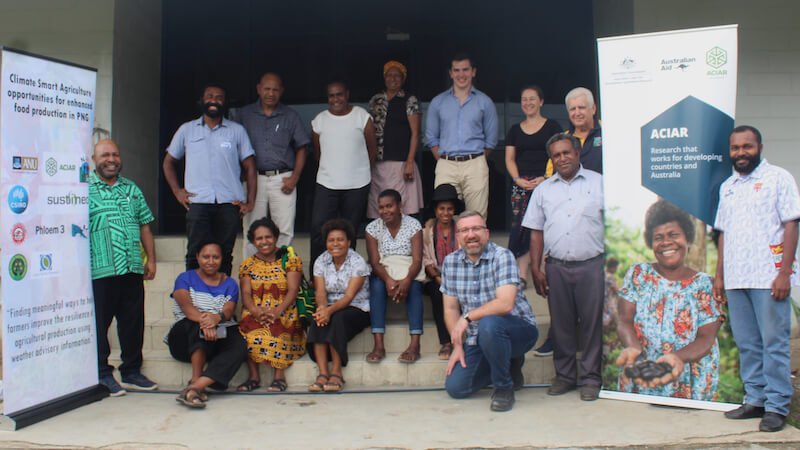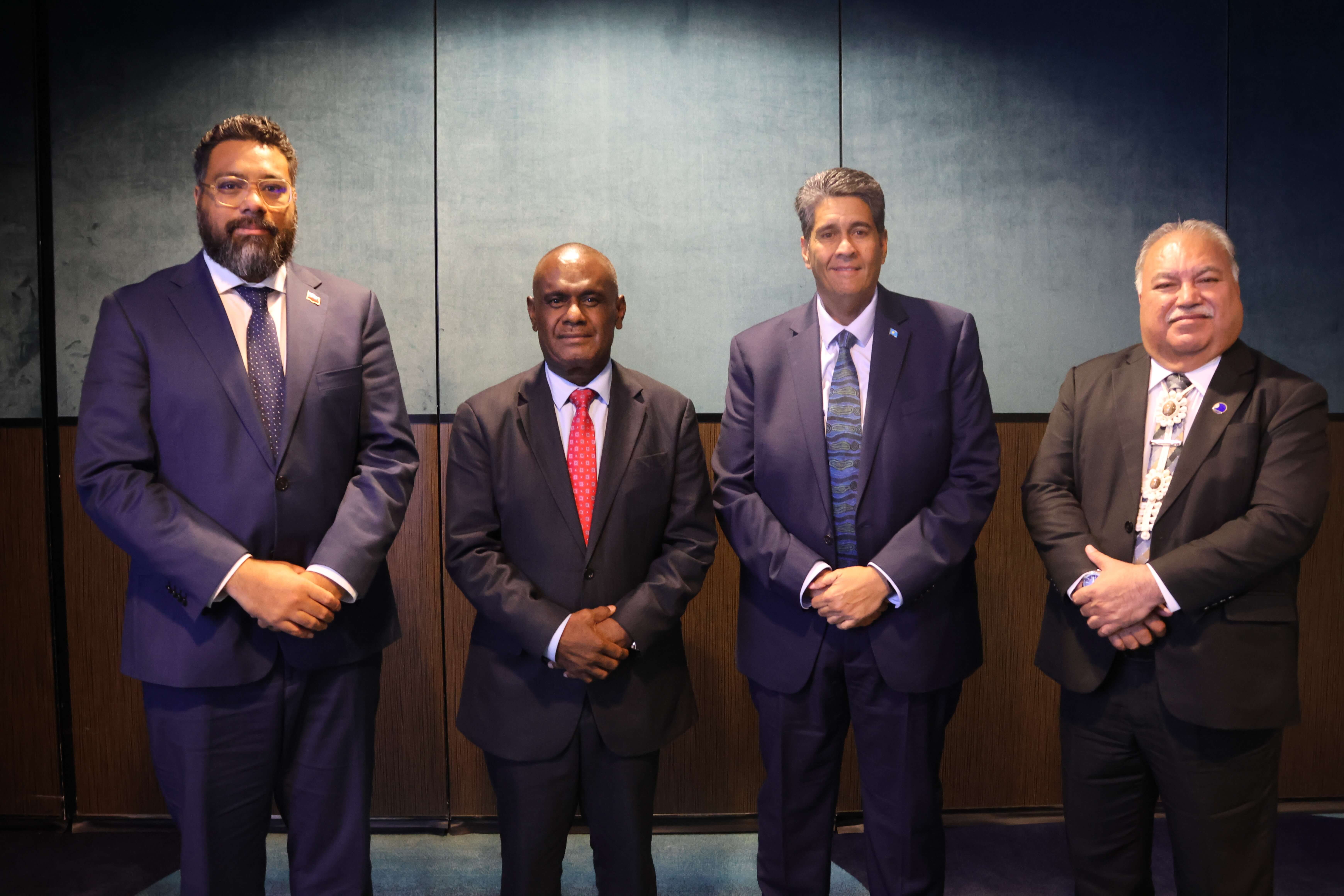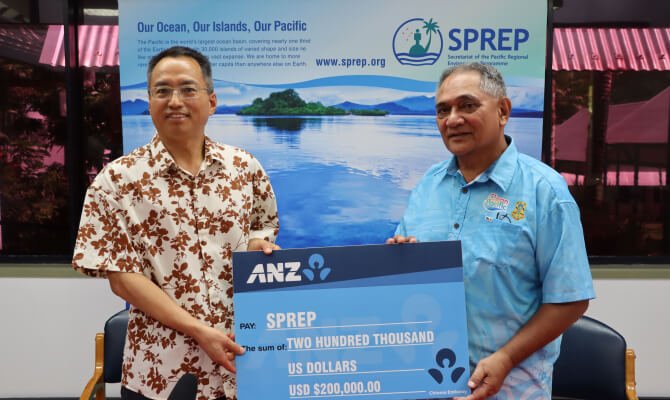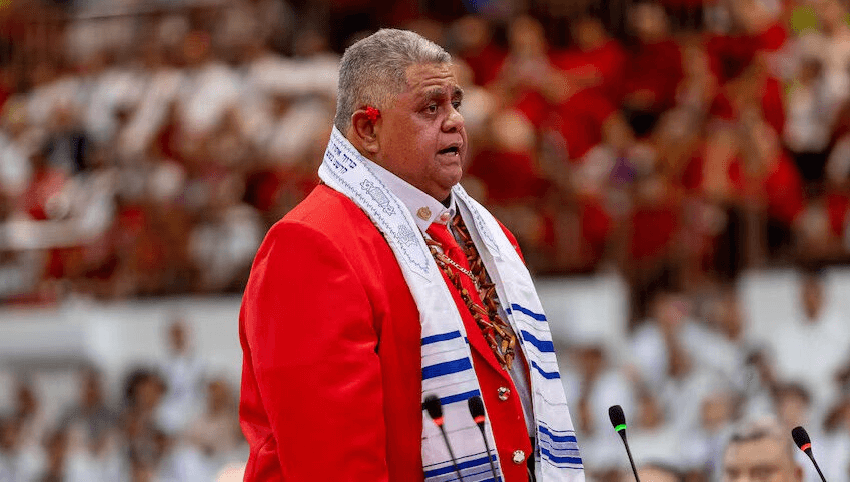With international travel firmly back on the agenda, one of our Senior Consultants, Ellis Mackenzie, travelled to Papua New Guinea (PNG) last week for a project workshop and valuable face-to-face connection with the project partners.
The Seasonal Farm Advisory Workshop was held at the National Agricultural Research Institute (NARI) Research Centre in Bubia (outside of Lae, PNG). It was part of the Australian Centre for International Agricultural Research (ACIAR) funded project, Climate Smart Agriculture opportunities for enhanced production in PNG. Sustineo has been working with our local partners in PNG and other Australian partners, including the Australian National University’s Institute for Climate, Energy & Disaster Solutions (ANU ICEDS) with the goal to disseminate seasonal climate forecasts to PNG farming communities to improve farm management decisions, and ultimately, improve food security.
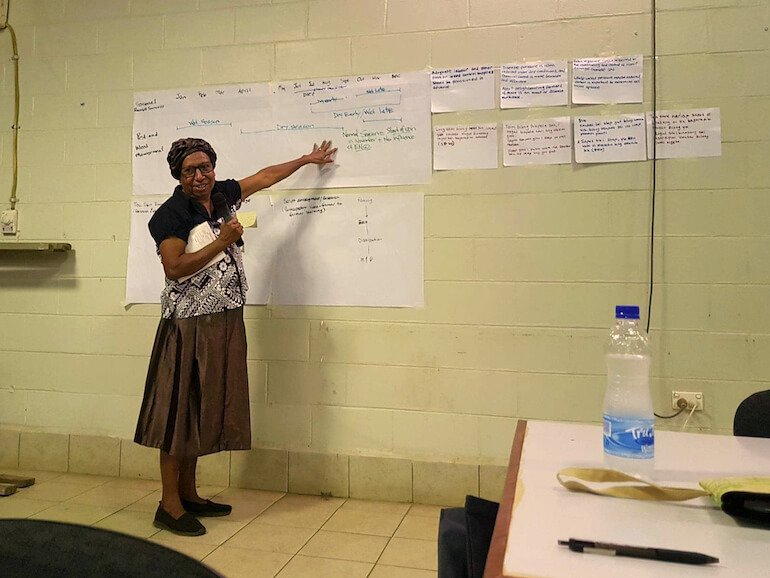
The workshop was an important opportunity for local PNG and Australian partners working on the project to come together to design and plan the rollout of seasonal climate forecast information packages for farming communities. A key component of the project is the Seasonal Farm Advisory, which translates long-term (1–5-month) climate forecasts for project sites across PNG into a set of recommended farm management responses. It will be the key conduit for getting information from forecasters to farmers in the field. The Seasonal Farm Advisory will be managed by NARI and the Fresh Produce and Development Agency (FPDA) in PNG and will be tailored to each project site.
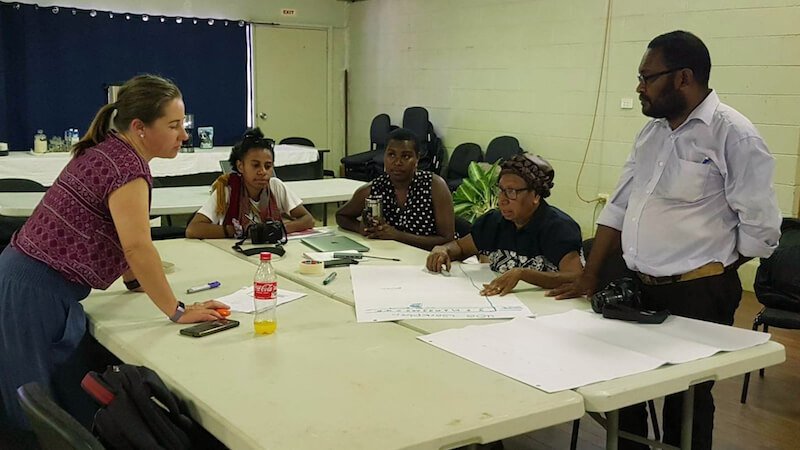
Sustineo has been overseeing the project’s monitoring and evaluation (M&E) to help project partners iteratively improve the project’s communication, engagement, and outputs. At the workshop, Ellis presented findings from a recent Project Partnership Health Check and facilitated group discussions on partnerships, gender and inclusion, and effective ways of working to support farmer engagement as part of the rollout of the Seasonal Farm Advisory.
The workshop provided a space for project partners to develop detailed workplans to support the implementation and long-term maintenance of the Seasonal Farm Advisory. A key aspect of this was identifying strengths and areas for further capacity development across the project team.
The workshop was also a key opportunity to build and reaffirm partnerships in-person in the wake of easing COVID-19 restrictions. These partnerships are the backbone of international projects and critical to success. We look forward to further work with our partners in PNG on these important development challenges that are facing farming communities.
